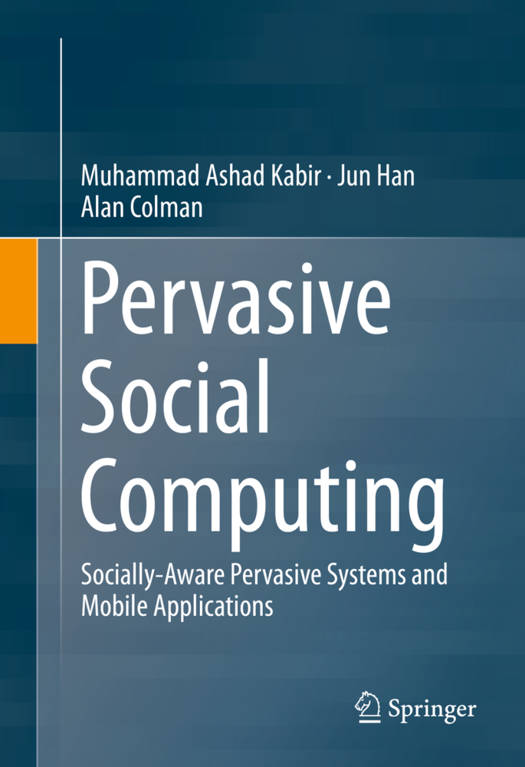
- Retrait gratuit dans votre magasin Club
- 7.000.000 titres dans notre catalogue
- Payer en toute sécurité
- Toujours un magasin près de chez vous
- Retrait gratuit dans votre magasin Club
- 7.000.0000 titres dans notre catalogue
- Payer en toute sécurité
- Toujours un magasin près de chez vous
Pervasive Social Computing
Socially-Aware Pervasive Systems and Mobile Applications
Muhammad Ashad Kabir, Jun Han, Alan ColmanDescription
This book presents a review of traditional context-aware computing research, identifies its limitations in developing social context-aware pervasive systems, and introduces a new technology framework to address these limitations. Thus, this book provides a good reference for developments in context-aware computing and pervasive social computing. It examines the emerging area of pervasive social computing, which is a novel collective paradigm derived from pervasive computing, social media, social networking, social signal processing and multimodal human-computer interaction.
This book offers a novel approach to model, represent, reason about and manage different types of social context. It shows how users' social context information can be acquired from different online social networks such as Facebook, LinkedIn, Twitter and Google Calendar. It further presents the use of social context information in developing innovative smart mobile applications to assist users in their daily life. The mix of both theoretical and applied research results makes this book attractive to a variety of readers from both academia and industry.
This book provides a new platform for implementing different types of socially-aware mobile applications. The platform hides the complexity of managing social context, and thus provides essential support to application developers for the development of socially-aware applications. The book contains detailed descriptions of how the underlying platform has been implemented using available technologies such as ontology and rule engines, and how this platform can be used to develop socially-aware mobile applications using two exemplar applications. The book also presents evaluations of the proposed platform and applications using real-world data from Facebook, LinkedIn and Twitter. Therefore, this book is a syndication of scientific research with practical industrial applications, making it useful to researchersas well as to software engineers.
Spécifications
Parties prenantes
- Auteur(s) :
- Editeur:
Contenu
- Nombre de pages :
- 282
- Langue:
- Anglais
Caractéristiques
- EAN:
- 9783319299495
- Date de parution :
- 23-05-16
- Format:
- Livre relié
- Format numérique:
- Genaaid
- Dimensions :
- 156 mm x 234 mm
- Poids :
- 603 g







